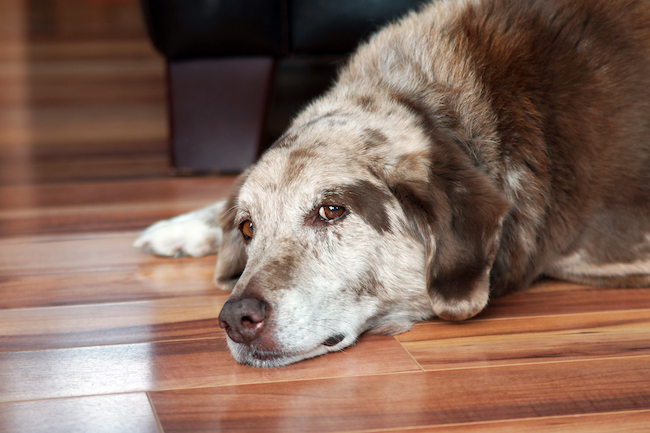
If you have decided to add an older cat to your home, or adopt a senior dog as your first animal, there are some important factors to bear in mind along the way. Caring for the physical, emotional and mental well-being of a pet has many facets, but though there is always a learning curve and adjustments that must be made, the rewards for your investment will be well worth the effort. Here are some tips for how to welcome a senior pet into your home.
Lifestyle Tips For Senior Pets
Grooming and maintenance: Cats are avid groomers, carefully licking and preening their coats on a daily basis, but this reality does not let you off the hook. Combing your cat, trimming his claws, brushing his teeth, and giving him an occasional bath are all a part of your new job description. However, if the older pet has trouble being handled, you might defer some of the more hands-on tasks (such as bathing, anal gland expression, and nail-trimming) to the professional groomers. But oral hygiene and coat maintenance are not to be neglected, unless you want to increase the likelihood of health ailments and diseases manifesting in your pet. The same goes for senior dogs. Canine grooming might seem like a luxury, but there are many elements which heavily affect an animal’s overall well-being. If you are taking responsibility for an animal, that means all areas of his life; even if they seem superficial, that is not always the case.
Diet and Exercise: Because potential medical issues will be one of the foremost concerns in caring for your pet, balancing diet and exercise are key in maintaining a healthy lifestyle. Choosing high-quality food might first feel like an unnecessary expense, but poor nutrition can cause allergies, skin irritation, dehydration, organ failure, digestive issues, and weakened immune systems. Prioritizing well-rounded nutrition is the best long-term medication you can provide your senior pet. Likewise, exercise is equally important. As they age, many cats and dogs tend to slow down, feeling disinclined to exert themselves. While they may not be expected to train for a marathon with you, it is still advisable to take your older dog for a 30-45 minute walk each day, and have a play session for the same amount of time with an elderly cat. Movement helps increase healthy blood flow, and will keep their muscles and spines intact.
Have regular check-ups: As your pet ages, make sure you see your vet on a regular basis so he can monitor the animal’s health. That way if anything is out of the ordinary or changes suddenly, you will be more likely to catch the problem before becomes critical. Watch your dog or cat closely, and if there are changes to sleeping patterns, behaviors, appetite, or any strange symptoms or smells around your cat, alert your veterinarian as soon as possible in case a disease is developing.
Other tips for living with senior pets:
- Always keep water accessible so the cat or dog doesn’t get dehydrated. (This is particularly a problem with felines!) Even if you are doing portion control to keep their weight down, there should always be water available.
- If your newly adopted pet is not eating right away, try feeding him from a flat dish instead of a bowl, warm up the food, sprinkle some aromatic elements (like tuna or chicken) on the dish to draw them in.
- When setting up the pet’s private corner, choose age-appropriate pet bedding like an orthopedic cushion (which is soft on arthritic joints) or a heat-retaining mattress.
- Aging pets can get stressed if there are loud noises, and large groups of people visiting, etc. Learn the anxiety triggers that bother many domestic pets so that you can provide a peaceful, stable environment for your senior fur-buddy.

